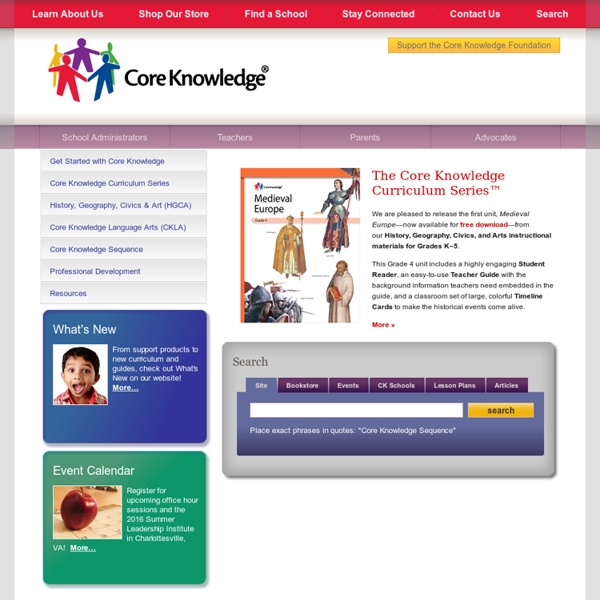



Home - The Reading & Writing Project The First 4,000 Words - The Vocabulary Building Program Math Expression: Free Math Tutor Online About PBS : PBS PBS Announces Sizzling Summer Season Lineup PBS announced today a summer schedule of programming spanning generations and genres. Summer highlights include star-studded dramas on Sundays, fascinating independent films and documentaries, including AMERICAN EXPERIENCE ”Freedom Summer.” PBS and our member stations are America’s largest classroom, the nation’s largest stage for the arts and a trusted window to the world. In addition, PBS's educational media helps prepare children for success in school and opens up the world to them in an age-appropriate way. We invite you to find out more about America’s largest public media enterprise. (April 10, 2014)PBS Announces Sizzling Summer Season Lineup (April 8, 2014)PBS, Member Stations and Producers Score a Combined 15 Webby Nominations and 11 Honoree Recognitions(April 7, 2014)PBS Programs Receive Five BAFTA Award Nominations and Two BAFTA Craft Award Nominations (April 2, 2014)PBS Programs Receive 12 Peabody Awards
The Standards Building on the best of existing state standards, the Common Core State Standards provide clear and consistent learning goals to help prepare students for college, career, and life. The standards clearly demonstrate what students are expected to learn at each grade level, so that every parent and teacher can understand and support their learning. The standards are: Research and evidence basedClear, understandable, and consistentAligned with college and career expectationsBased on rigorous content and the application of knowledge through higher-order thinking skillsBuilt upon the strengths and lessons of current state standardsInformed by other top-performing countries to prepare all students for success in our global economy and society According to the best available evidence, the mastery of each standard is essential for success in college, career, and life in today’s global economy. For grades K-8, grade-by-grade standards exist in English language arts/literacy and mathematics.
Online "… so we repaired to a publick-house, took a friendly glass, and thus parted." — Peter Drake, Amiable Renegade: The Memoirs of Captain Peter Drake, 1671–1753, 1960 "… Warren repaired to the dining alcove off the kitchen … and ate dinner with Nina and the children, discussing their schoolwork and events of the day." — Kevin Starr, Embattled Dreams, 2002 We are all familiar with the verb repair used as a synonym of fix. But today's word, while it is a homograph and a homophone of the more familiar repair, is a slightly older and unrelated verb. Repair, the synonym of fix, comes via Anglo-French from the Latin reparare, a combination of the re- prefix and parare ("prepare"). Repair, the synonym of go (which in English also once meant "to return"), has Anglo-French and Latin roots too, but makes its way back to the Late Latin repatriare (which means "to go home again" and is a source of the English repatriate).
Education We Need A Higher Minumum Wage Are American workers in need of a raise? Last week, students across the country debated about whether or not the minimum wage should be increased in our #DoNowWages post. We asked students What is an appropriate minimum wage for where you live? In other words, what is the basic amount of pay per hour that a worker in your city would need to earn in order to make ends meet? Continue Reading A Visualization of How The Drought is Impacting California’s Reservoirs California is home to a number of reservoirs and dams that provide water and power to surrounding cities and farms. Continue Reading What Happened to Malaysian Airlines Flight 370? About a month ago a Malaysian Airplane mysteriously disappeared. Continue Reading Selfies Are Okay, But Don’t Take Too Many Love them or hate them, selfies have become one of the most common ways people express themselves on social media. Continue Reading At Adobe Books with Chris Johanson Continue Reading Continue Reading
File your weekly claim After you apply for unemployment benefits, you must file at least one weekly claim in order to begin receiving benefits. Then, you must file a claim each week until you want your benefits to stop. How to file File online; orCall 800-318-6022 to use the automated phone system; orCall 800-365-8969 if you are a TTY user. When to file Anytime between Sunday at 12:00 a.m. through Friday at 5 p.m. You should file even if you’re waiting to: Find out if you qualify for benefits.Have wages and hours added to your claim.Appeal a denial of benefits. Example See also Pages 12-14 of the Handbook for Unemployed Workers (PDF, 2.9MB).Video instructions for submitting a weekly claim.What to do if you miss a week: learn how to reopen your claim.